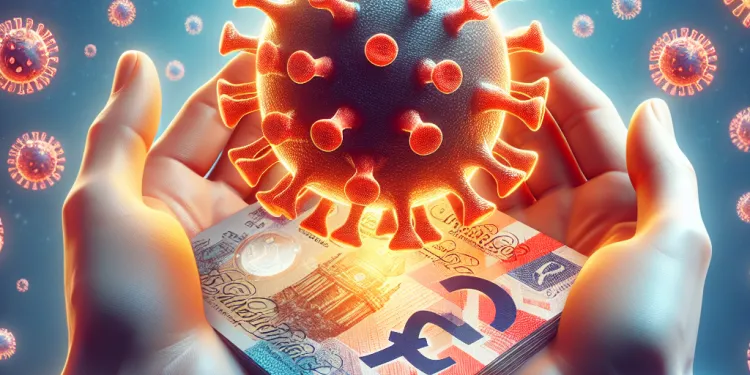
Find Help
More Items From Ergsy search
-
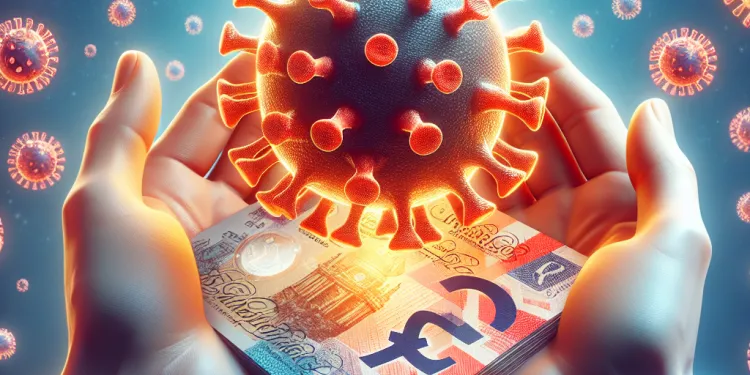
Can HPV lead to cancer?
Relevance: 100%
-
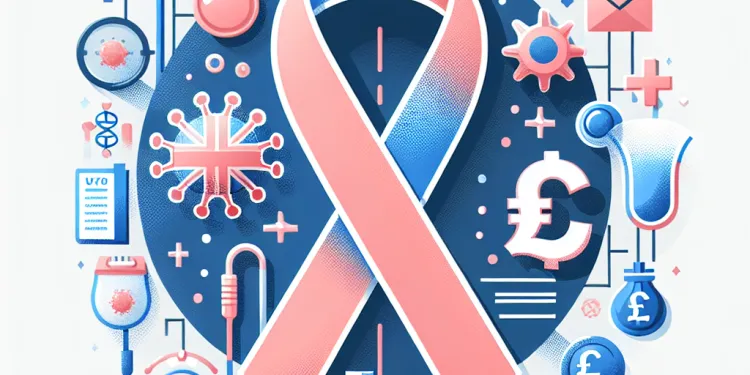
What is the link between HPV and cervical cancer?
Relevance: 93%
-

Are there symptoms of an HPV infection?
Relevance: 84%
-

What is the HPV Virus?
Relevance: 83%
-

Is HPV testing available?
Relevance: 82%
-

How common is HPV?
Relevance: 81%
-

Can HPV be treated?
Relevance: 81%
-
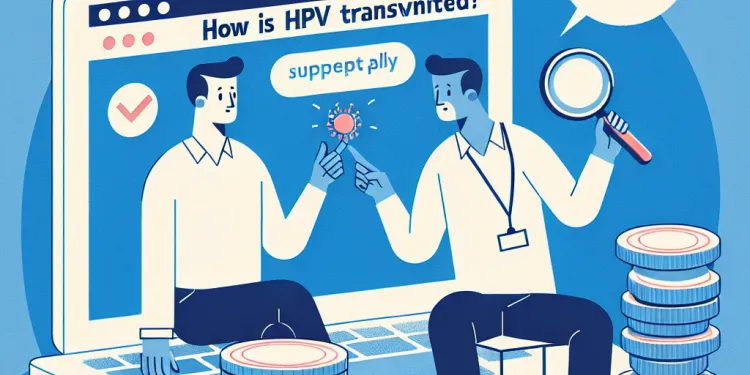
How is HPV transmitted?
Relevance: 80%
-

Do men need the HPV vaccine?
Relevance: 78%
-

How can HPV be prevented?
Relevance: 78%
-

What health problems can HPV cause?
Relevance: 78%
-

Can HPV affect both men and women?
Relevance: 77%
-
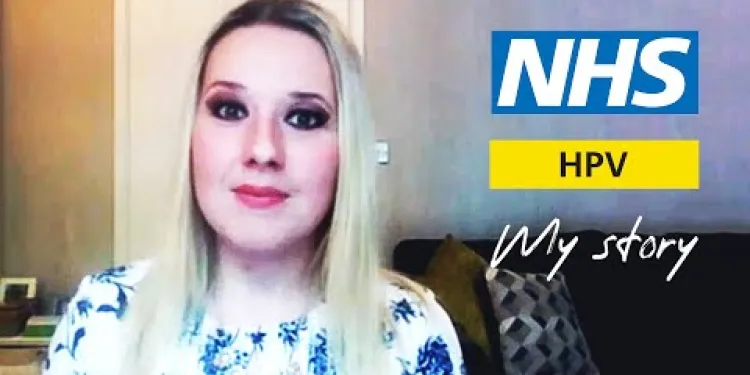
HPV - My Story | NHS
Relevance: 77%
-

What is the year 8 HPV vaccine? | NHS
Relevance: 77%
-
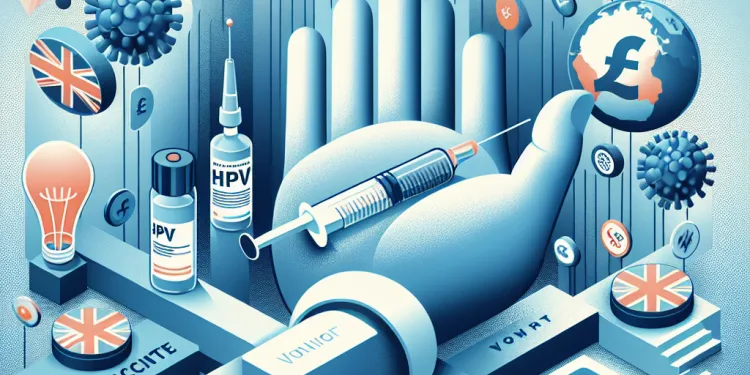
Who should get the HPV vaccine?
Relevance: 75%
-

Can HPV go away on its own?
Relevance: 75%
-

Surge in HPV Vaccination Rates Among Young Women in the UK
Relevance: 71%
-
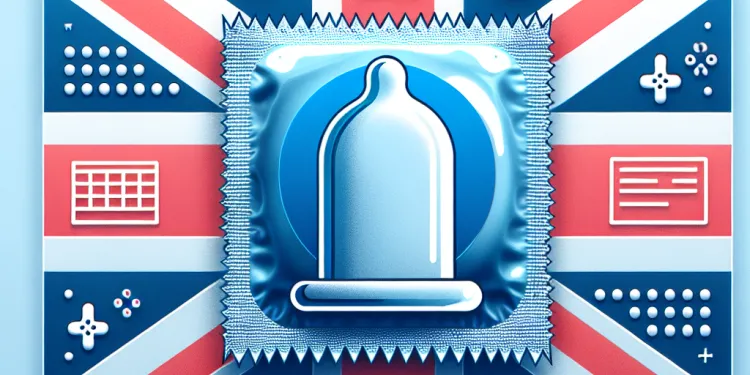
Can using condoms fully protect against HPV?
Relevance: 70%
-

What age group is most at risk for HPV?
Relevance: 66%
-

Vaginal Cancer
Relevance: 64%
-

Mouth Cancer Infomercial
Relevance: 62%
-
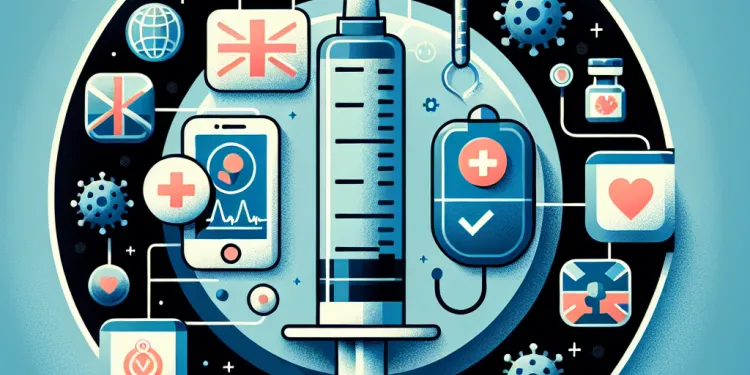
Is there a vaccine for HPV?
Relevance: 61%
-

Vulval Cancer
Relevance: 60%
-
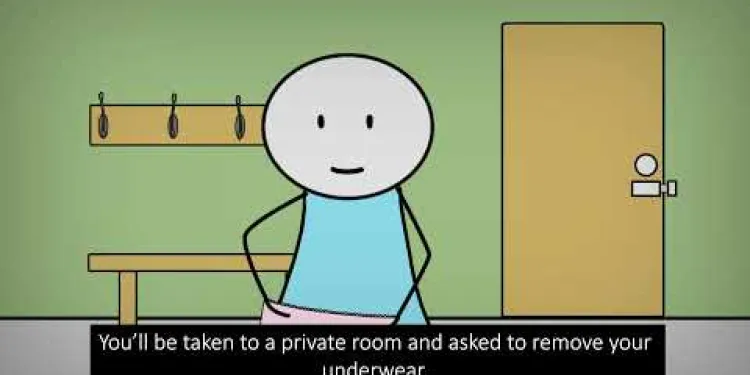
NHSGGC - Cervical Cancer Screening - English
Relevance: 58%
-
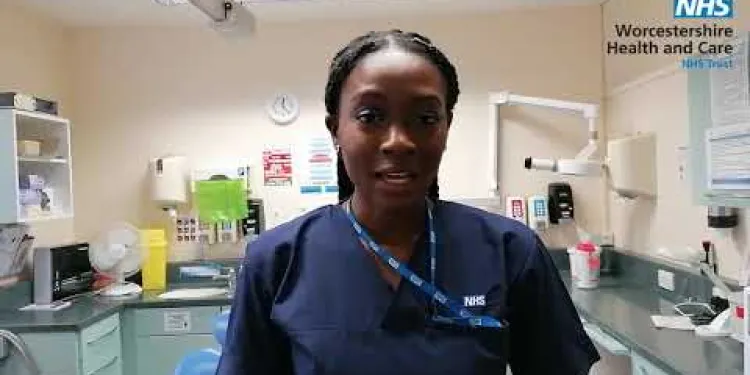
Mouth Cancer Awareness
Relevance: 58%
-

Head and Neck Cancer Diagnosis
Relevance: 57%
-

How many types of HPV are there?
Relevance: 55%
-
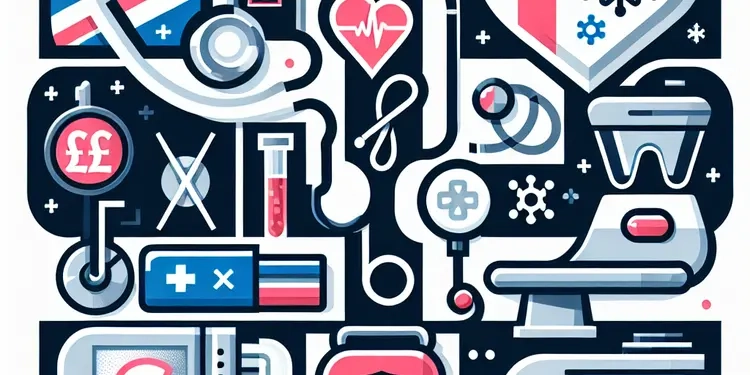
What kinds of cancer screening are available?
Relevance: 53%
-
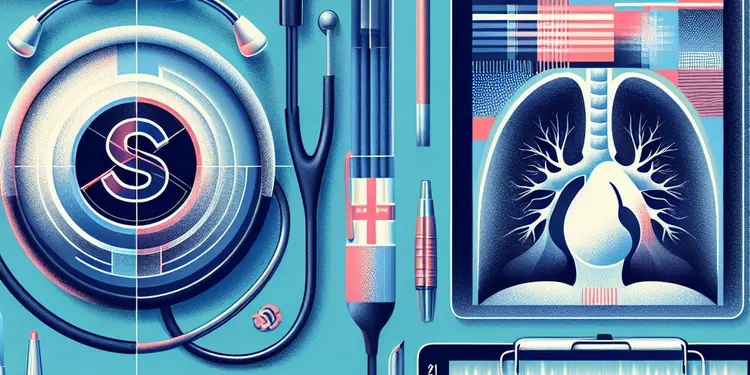
When should cervical cancer screening begin?
Relevance: 47%
-
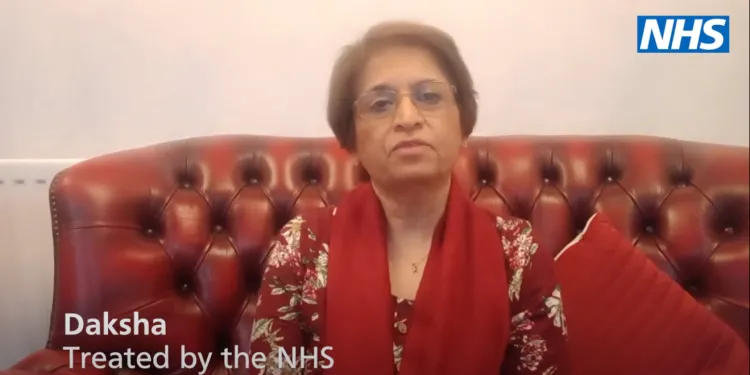
What is Cancer?
Relevance: 45%
-

Understanding Your Sexual Health - Genital Warts
Relevance: 43%
-
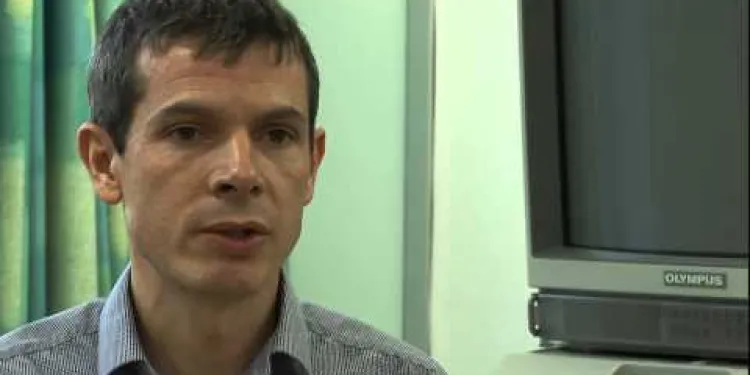
Bowel cancer - Symptoms and signs to look out for
Relevance: 39%
-
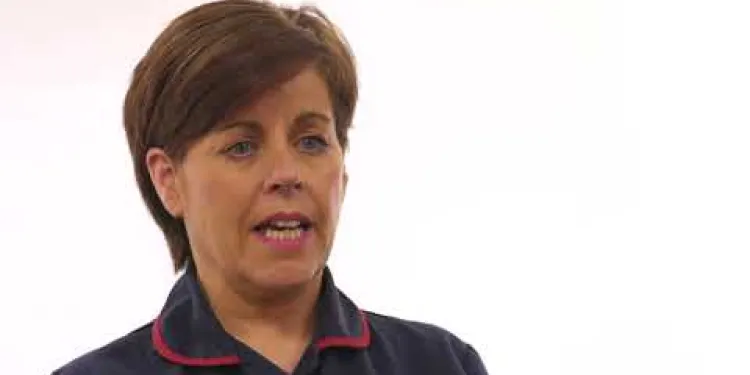
Ovarian Cancer
Relevance: 39%
-

Endometrial Cancer
Relevance: 39%
-

Endometrial Cancer
Relevance: 39%
-

Endometrial Cancer
Relevance: 39%
-
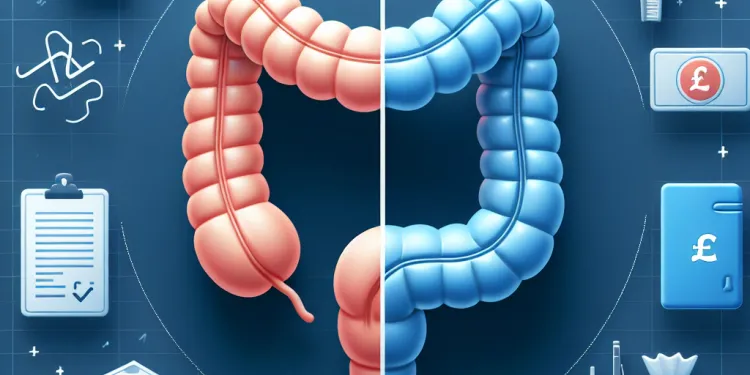
What is the difference between colon cancer and rectal cancer?
Relevance: 38%
-

What is cancer screening?
Relevance: 38%
-

What is testicular cancer?
Relevance: 38%
-

What is colorectal cancer?
Relevance: 37%
Introduction to HPV and Its Health Implications
Human Papillomavirus (HPV) is a group of more than 200 related viruses. It is one of the most common sexually transmitted infections (STIs) in the UK. While the majority of HPV infections are harmless and resolve on their own, certain strains of HPV are known to lead to cancer. Understanding the connection between HPV and cancer is crucial for effective prevention and early intervention.
How HPV Can Lead to Cancer
HPV is primarily transmitted through intimate skin-to-skin contact. Although many types of HPV exist, only a few are considered high-risk for cancer. High-risk HPV types, particularly HPV-16 and HPV-18, can cause cellular changes in the body. If the body’s immune system does not clear the virus, these altered cells can gradually develop into cancerous cells over time.
The most common cancers associated with HPV include cervical cancer, anal cancer, oropharyngeal cancer (affecting the throat and mouth), as well as vulvar, vaginal, and penile cancers. Cervical cancer is the most prevalent HPV-related cancer in women, primarily caused by high-risk HPV types.
Prevention and Vaccination
Vaccination is a highly effective method to prevent HPV-associated cancers. The HPV vaccine is routinely offered to young people in the UK, beginning at the age of 12 or 13 years. The vaccine protects against the most common high-risk HPV types and significantly reduces the risk of developing cervical and other types of cancer. Furthermore, the NHS offers cervical screening (smear tests) for women aged 25 to 64, which helps in early detection and management of pre-cancerous changes in the cervix.
Importance of Regular Screening
Regular cervical cancer screening is vital as it can identify abnormal cells before they develop into cancer. The screening process involves checking for the presence of HPV and any changes in the cervical cells. Early detection and treatment of abnormal cells can prevent cervical cancer from developing. Although screening is primarily focused on cervical cancer, awareness of other potential HPV-related cancers is important for overall health. Men and women should be attentive to any unusual symptoms such as persistent sore throat, lumps, or skin changes, and seek medical advice when necessary.
Conclusion
While HPV is a common infection that most sexually active people will encounter at some point, the link between certain high-risk types of the virus and cancer underlines the importance of vaccination and regular health checks. By taking preventive measures such as the HPV vaccine and participating in regular screenings, individuals can significantly lower their risk of developing HPV-related cancers. Awareness and early intervention remain key in managing health effectively and reducing the impact of HPV in the UK population.
Introduction to HPV and Its Health Implications
HPV stands for Human Papillomavirus. It is a group of over 200 viruses. HPV is a common infection in the UK that can be passed on during sex. Most of the time, HPV is not harmful and goes away by itself. But some types of HPV can cause cancer. Knowing how HPV can lead to cancer helps to stop it early.
How HPV Can Lead to Cancer
HPV spreads through close skin contact, especially during sex. There are many types of HPV, but only a few can cause cancer. Types called HPV-16 and HPV-18 are the most dangerous. They can change cells in the body. If the body cannot clear the virus, these cells can turn into cancer. Cancers linked to HPV include those in the cervix, anus, throat, mouth, vulva, vagina, and penis. For women, cervical cancer is the most common one caused by HPV.
Prevention and Vaccination
Getting a vaccine can stop HPV cancers. In the UK, kids aged 12 or 13 get the HPV vaccine. This vaccine stops the most dangerous types of HPV. This helps lower the chance of getting cervical and other cancers. The NHS also offers cervical checks for women aged 25 to 64. These checks find changes in the cervix early so they can be treated.
Importance of Regular Screening
Regular checks for cervical cancer are very important. These checks find changes in cells before they turn into cancer. During a screening, doctors look for HPV and changes in the cervix. Finding and treating these changes early can stop cancer. While the focus is on cervical cancer, it's also important to know about other cancers linked to HPV. Both men and women should look out for signs like a sore throat that won't go away, lumps, or changes on the skin. See a doctor if these happen.
Conclusion
Many people will get HPV, but only some types cause cancer. That is why getting the HPV vaccine and having regular health checks is important. By getting vaccinated and having screenings, people can lower the chance of getting HPV-related cancers. Knowing about and acting early against HPV helps keep people healthier and reduces its effects in the UK.
Frequently Asked Questions
What is HPV?
HPV, or human papillomavirus, is a group of viruses that can infect the genital area, as well as the mouth and throat.
Can HPV cause cancer?
Yes, certain types of HPV can lead to cancer, including cervical, anal, oropharyngeal, penile, vulvar, and vaginal cancers.
How does HPV lead to cancer?
HPV can cause changes in cells that may lead to cancer over time, especially if the virus persists in the body.
Which HPV types are most commonly associated with cancer?
HPV types 16 and 18 are most commonly associated with cancer and are found in the majority of HPV-related cancers.
How is HPV transmitted?
HPV is primarily transmitted through intimate skin-to-skin contact, including vaginal, anal, and oral sex.
Can HPV infections be prevented?
Yes, vaccines are available that protect against the types of HPV most likely to cause cancer and disease.
Who should get vaccinated against HPV?
The CDC recommends HPV vaccination for preteens aged 11 to 12 years, but vaccination can be given as early as age 9 and through age 26 for those who were not vaccinated earlier.
Is HPV vaccination effective?
Yes, HPV vaccines are highly effective in preventing infection with the HPV types they cover when given before an individual is exposed to the virus.
Can HPV infections be treated?
There is no treatment for the virus itself, but medical interventions can treat health problems caused by HPV, such as genital warts or precancerous lesions.
What is cervical cancer?
Cervical cancer is a type of cancer that occurs in the cells of the cervix, and HPV infection is the primary cause.
How common is HPV?
HPV is very common, with most sexually active people contracting it at some point in their lives.
Can HPV infections go away on their own?
Yes, most HPV infections go away on their own within two years without causing any health problems.
Are there symptoms of HPV-related cancers?
Early-stage HPV-related cancers often do not cause symptoms. As the cancer progresses, symptoms will vary based on the type of cancer.
Can men be affected by HPV-related cancers?
Yes, men can develop cancers caused by HPV, including penile, anal, and oropharyngeal cancers.
Is there a test for HPV in men?
Currently, there is no FDA-approved test to detect HPV in men.
How is HPV-related cervical cancer detected?
Cervical cancer can often be detected early with regular screening tests, such as Pap smears and HPV tests.
If I have HPV, will I definitely get cancer?
No, most people with HPV do not develop cancer. Persistent infection with high-risk HPV types is one of many factors that may lead to cancer.
Can someone get HPV more than once?
Yes, it is possible to get infected with different types or the same type of HPV at different times.
Does using condoms prevent HPV infection?
Condoms can reduce the risk of HPV transmission but do not provide complete protection as HPV can infect areas not covered by condoms.
Why is it important to understand HPV and its link to cancer?
Understanding HPV and its link to cancer helps in prevention, early detection, and reduces the incidence and mortality of HPV-related cancers through vaccination and screening.
What is HPV?
HPV is a tiny germ that can make people sick. It spreads by touching. Most people do not feel sick with it.
You can use picture books or simple videos to learn more about HPV. Ask an adult for help if you have questions.
HPV is a kind of germ. It stands for human papillomavirus. It can get into private parts, the mouth, and the throat.
Can HPV make you sick with cancer?
HPV is a virus. It can sometimes make cells in the body change in a bad way. This can lead to cancer.
If you have questions, talk to a doctor or nurse. They can help you understand more.
Tools like simple videos or picture books can help explain. You can also ask an adult you trust to help you read or explain.
Yes, some kinds of HPV can cause cancer. This can be cancer in places like the cervix, anus, mouth and throat, penis, vulva, and vagina.
How can HPV cause cancer?
HPV is a type of germ that can make people sick. Sometimes, it can cause something very serious called cancer.
Here is how it works:
- HPV can get into the body through the skin.
- It can make cells act in a wrong way.
- The wrong cells can grow too much, like a bump or lump.
- This lump can turn into cancer if it doesn't get treated.
It is very important to see a doctor if you think you might have HPV or if you notice any lumps or bumps.
You can also get a vaccine that helps protect you from the bad types of HPV.
If reading is hard, try using pictures or videos to learn more.
HPV is a virus. It can make cells change in a bad way. This can lead to cancer if the virus stays in the body for a long time.
What HPV types are linked to cancer the most?
HPV is a virus. Some types of this virus can lead to cancer. The most common types linked to cancer are types 16 and 18.
To understand better, you can:
- Ask a doctor for advice.
- Use pictures to help explain.
- Watch simple videos about HPV.
HPV types 16 and 18 are common causes of cancer. They are found in most HPV cancers.
How does HPV spread?
HPV spreads when people touch skin during close and private activities, like when they have sex.
Can we stop HPV infections?
HPV is a virus that can make people sick. But there are ways to stop it:
- Get the HPV vaccine: The vaccine helps keep you safe from the virus. It is important to get it at the right age. Ask a doctor about it.
- Use protection: Wearing a condom when you have sex can help stop the virus from spreading.
- Regular check-ups: Visit the doctor for check-ups. They can find problems early and help you stay healthy.
These steps can help keep you safe from HPV.
Yes, there are shots that can help protect you from types of HPV that might cause cancer and make you sick.
Who should get the HPV vaccine?
The HPV vaccine is important for everyone. It helps protect against the HPV virus. The vaccine is best for:
- Kids from 9 years to 12 years old
- Teenagers
- Grown-ups who have not had the vaccine yet
If you have questions, talking to a doctor or nurse can help. They can give good advice.
The CDC says kids should get the HPV vaccine when they are 11 or 12 years old. But kids can get the vaccine as early as 9 years old. People who did not get the vaccine when they were younger can still get it until they are 26 years old.
Does the HPV vaccine work?
The HPV vaccine helps keep you safe from some types of HPV virus. This virus can make you sick. The vaccine is like a shield for your body. It is best to get the vaccine when you are young. It will protect you better then.
If you find reading hard, here are some tips to help:
- Ask someone to read with you.
- Use pictures or videos to learn more about HPV.
- Use audiobooks or recordings if you like listening more than reading.
Yes, HPV vaccines work really well. They stop you from getting the HPV virus if you have the vaccine before you meet the virus.
Can HPV be fixed?
HPV is a virus that can go away on its own. If it doesn't, doctors can help with health problems caused by HPV. If you are worried, talk to a doctor.
To feel better, you can:
- Ask your doctor questions.
- Use medicine from your doctor.
- Rest and eat healthy food.
- Talk to someone who listens to you.
There is no treatment to get rid of the virus itself. But doctors can help with health problems that HPV might cause, like warts or changes in skin cells that could lead to cancer.
What is cervical cancer?
Cervical cancer is a type of cancer that happens in the cervix. The cervix is the lower part of the womb that opens into the vagina.
This cancer can be serious, but it can often be treated well if found early.
If you have questions, you can ask a doctor or a nurse. They can help you understand more.
Cervical cancer happens in the cervix, which is a part of the body. The main cause of this cancer is a virus called HPV.
How many people have HPV?
HPV is a virus. It is very common. Many people have it. Most people get it at some point. It often goes away on its own.
Here are some tips to help you understand better:
- Ask someone you trust to read with you.
- Use pictures or videos about HPV to learn more.
- Write down any questions you have and ask a nurse or doctor.
HPV is something that lots of people have. Most people who have had sex will get it at some time.
Can HPV Go Away by Itself?
Yes, sometimes the body can get rid of HPV on its own. This can take a few years. It's like when you have a cold, and your body makes it better. Eating healthy food, sleeping well, and keeping fit can help your body stay strong.
If you are worried, talk to a doctor. They can help and give good advice. For more support, you can use picture charts or videos to learn more.
Yes, most HPV infections disappear by themselves in two years and do not cause health problems.
Do HPV-related cancers have signs?
When HPV-related cancers start, they usually do not make you feel sick. As time goes on and the cancer grows, you might notice different signs, depending on the kind of cancer.
Can men get cancer from HPV?
Yes, boys and men can get some types of cancer from HPV. These include cancer in the penis, bum, and throat areas.
Can men get tested for HPV?
Doctors do not have a test for HPV in men like they do for women. But men can still talk to their doctor if they are worried about HPV.
If you want to learn more, you can:
- Ask your doctor for advice.
- Use the internet to find information from trusted health websites.
- Read easy books about health to understand more.
Right now, there is no test approved by the FDA to find HPV in men.
How do doctors find HPV-related cervical cancer?
Doctors find this kind of cancer with special tests. These help them see if there are any problems.
Here are two common tests:
- Pap test: This test looks for changes in the cells of the cervix.
- HPV test: This test checks for the virus that can cause cervix problems.
If you need help with reading, ask someone you trust. You can also use apps that read text out loud.
Doctors can find cervical cancer early with special tests. These tests are called Pap tests and HPV tests. It is good to have these tests often.
If I have HPV, will I get cancer for sure?
Not everyone with HPV will get cancer. HPV is a common virus. It can go away on its own. Sometimes, it can cause health problems.
If you are worried, talk to a doctor. They can help. A doctor can check to make sure you are okay.
Tools that can help:
- Use a calendar to remember check-ups.
- Ask someone you trust to go with you to the doctor.
- Write down your questions before you visit the doctor.
No, most people who have HPV do not get cancer. Having the HPV virus for a long time can be one part of what causes cancer.
Can a person get HPV again?
Yes, a person can get HPV again. HPV is a virus that can affect people more than once. To help understand better, try using pictures or videos. Talking with a doctor can also help.
Yes, you can catch different kinds of HPV, or the same kind, at different times.
Do condoms stop you from getting HPV?
Condoms can help stop HPV from spreading, but they do not keep you 100% safe. HPV can still get on parts of the body that a condom does not cover.
Why should we learn about HPV and cancer?
HPV is a virus. It can make you sick. It can also lead to cancer. This is why it is important to know about it. Learning about HPV can help keep you safe and healthy.
Here are some tips to help understand:
- Use simple words to learn new facts.
- Look at pictures or videos to help explain ideas.
- Ask someone you trust, like a parent or teacher, to help you understand.
- Use tools like audio books if reading is hard.
Learning about HPV and how it is linked to cancer helps keep us safe. It helps us find cancer early and stay healthy. Getting vaccines and check-ups can stop HPV-related cancers and save lives.
Useful Links
This website offers general information and is not a substitute for professional advice.
Always seek guidance from qualified professionals.
If you have any medical concerns or need urgent help, contact a healthcare professional or emergency services immediately.
- Ergsy carfully checks the information in the videos we provide here.
- Videos shown by Youtube after a video has completed, have NOT been reviewed by ERGSY.
- To view, click the arrow in centre of video.
- Most of the videos you find here will have subtitles and/or closed captions available.
- You may need to turn these on, and choose your preferred language.
- Go to the video you'd like to watch.
- If closed captions (CC) are available, settings will be visible on the bottom right of the video player.
- To turn on Captions, click settings .
- To turn off Captions, click settings again.
More Items From Ergsy search
-

Can HPV lead to cancer?
Relevance: 100%
-

What is the link between HPV and cervical cancer?
Relevance: 93%
-

Are there symptoms of an HPV infection?
Relevance: 84%
-

What is the HPV Virus?
Relevance: 83%
-

Is HPV testing available?
Relevance: 82%
-

How common is HPV?
Relevance: 81%
-

Can HPV be treated?
Relevance: 81%
-

How is HPV transmitted?
Relevance: 80%
-

Do men need the HPV vaccine?
Relevance: 78%
-

How can HPV be prevented?
Relevance: 78%
-

What health problems can HPV cause?
Relevance: 78%
-

Can HPV affect both men and women?
Relevance: 77%
-

HPV - My Story | NHS
Relevance: 77%
-

What is the year 8 HPV vaccine? | NHS
Relevance: 77%
-

Who should get the HPV vaccine?
Relevance: 75%
-

Can HPV go away on its own?
Relevance: 75%
-

Surge in HPV Vaccination Rates Among Young Women in the UK
Relevance: 71%
-

Can using condoms fully protect against HPV?
Relevance: 70%
-

What age group is most at risk for HPV?
Relevance: 66%
-

Vaginal Cancer
Relevance: 64%
-

Mouth Cancer Infomercial
Relevance: 62%
-

Is there a vaccine for HPV?
Relevance: 61%
-

Vulval Cancer
Relevance: 60%
-

NHSGGC - Cervical Cancer Screening - English
Relevance: 58%
-

Mouth Cancer Awareness
Relevance: 58%
-

Head and Neck Cancer Diagnosis
Relevance: 57%
-

How many types of HPV are there?
Relevance: 55%
-

What kinds of cancer screening are available?
Relevance: 53%
-

When should cervical cancer screening begin?
Relevance: 47%
-

What is Cancer?
Relevance: 45%
-

Understanding Your Sexual Health - Genital Warts
Relevance: 43%
-

Bowel cancer - Symptoms and signs to look out for
Relevance: 39%
-

Ovarian Cancer
Relevance: 39%
-

Endometrial Cancer
Relevance: 39%
-

Endometrial Cancer
Relevance: 39%
-

Endometrial Cancer
Relevance: 39%
-

What is the difference between colon cancer and rectal cancer?
Relevance: 38%
-

What is cancer screening?
Relevance: 38%
-

What is testicular cancer?
Relevance: 38%
-

What is colorectal cancer?
Relevance: 37%


